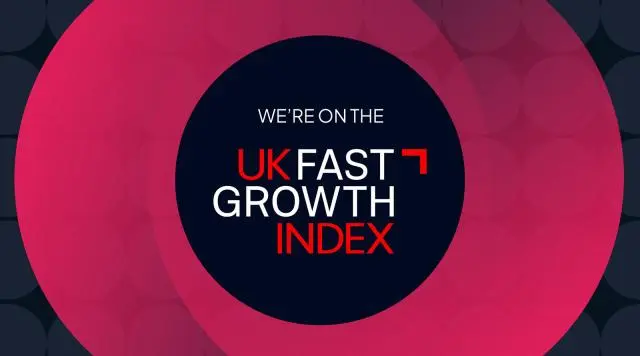6 Things Every Sustainability Officer Should Be Thinking About in 2024
Mon, April 22, 2024- by Jamille Sammour
- 5.5 minute read

Major environmental, social and governance (ESG) trends like climate change, the road to net zero and social inequality have become mainstream news over the past couple of years, and organisations are starting to take massive action.
But if 2023 was a year of continuity, where ESG cemented its importance in businesses of all sizes, 2024 may bring upheaval once again. New regulations, more extensive reporting requirements and social concerns may fundamentally alter the landscape for Chief Sustainability Officers and ESG leads.
In this article, we look to the year ahead and outline the six things we believe every sustainability officer should be thinking about in 2024.
1. New sustainability regulations
The biggest issue facing ESG officers in the EU and the UK is the raft of new legislation either coming at them fast or already being implemented.
Governments around the world are introducing new rules and updating existing regulations in 2024, something ESG leaders everywhere need to be concerned about. But nowhere is the effect being felt more than in Europe.
Take the Corporate Sustainability Reporting Directive (CSRD), for example. This piece of EU legislation aims to standardise non-financial reporting and will require large companies and listed SMEs everywhere in the EU to publish regular reports on their environmental and social impact.
EU companies will also need to comply with the corporate sustainability due diligence directive, which mandates reporting the impact of operations on human rights and the environment. UK companies will be subject to new regulations, too. The Streamlined Electricity and Carbon Reporting regulation requires organisations to report on their emissions and energy consumption.
Around 50,000 companies will be subjected to the EU’s sustainability reporting regulations, including non—EU companies with subsidiaries operating in or listed on EU markets. It’s not just listed companies that are accountable to these new rules. Small and medium-sized businesses, both within and outside the EU, will need to meet requirements based on their revenue and presence within the bloc.
CSOs and ESG leads need to be at the top of their game in order to understand and act on these new regulations.
2. Improving ESG reporting
The new regulations discussed above are bringing new sustainability reporting requirements — requirements that aren’t just being implemented, but enforced.
The Corporate Sustainability Reporting Directive (CSRD), in particular, is forcing companies to formalise their systems for capturing ESG data and comply with non-financial reporting requirements for the first time — requirements that are more complex than most companies are used to.
Double materiality means businesses need to report on both their impact materiality (the impact of their business on sustainability matters) and their financial materiality (the impact that sustainability matters will have on the company’s finances.) The regulation also requires companies to set targets and baselines, and report on their progress
Even organisations that have been creating ESG reports for years will need to advance their data collection and reporting methods to meet new requirements.
3. Automating ESG data collection
Meeting new reporting requirements will be particularly challenging for companies that lack a robust way to collect and manage ESG data.
This data can no longer take the form of a black box, where neither CSOs nor their teams really understand how data is collected or consolidated.
The onus is on ESG leads and CSOs to understand the new data points, metrics and KPIs required to report on sustainability regulations and put together a reporting system that improves their data governance and lets them create reports as quickly and easily as possible.
Speed and clarity are key, and those with an automated way to collect and centralise ESG data will quickly develop a competitive advantage.
Our upcoming webinar on 14th May 2024 explores how to automate and accelerate your sustainability data. Register for your spot today.
4. Tackling Scope 3 emissions
Scope 3 is almost every business's biggest source of emissions, and tackling it will be a particularly important challenge in the year ahead.
Understandably, businesses have steered clear of Scope 3 emissions in their reports since these indirect emissions that occur throughout a company’s supply chain are incredibly difficult to calculate. But with these emissions accounting for up to 90% of a company’s total carbon footprint, more transparency is essential — especially given the introduction of new laws in California and the CSRD.
Every business in the supply chain will need to improve its ESG performance transparency, but ESG and finance teams will be responsible for collecting and accounting for all these emissions. In practice, this will mean mapping the supply chain and working with suppliers to collect accurate emission calculations.
Reporting on Scope 3 emissions is just the start, however. Stakeholders and executives will expect reductions in these emissions wherever possible, which means you’ll also need to create more detailed and ESG-focused procurement policies moving forward.
5. Growing your team
In the face of these challenges we’ve outlined so far, ESG leads will almost certainly be looking to grow their teams in the year ahead. In fact, a report by Total Jobs found UK companies are proactively recruiting sustainability roles and investing heavily in sustainability skills.
ESG leads will also be responsible for helping their company improve their hiring practices as a whole since many employees are prioritising ESG-focused companies in their job search. A report by Indeed, for example, found that 16% of millennials have switched jobs for a career that aligns with their values and 23% are prepared to do so. These recruits are scrutinising ESG data more than ever before, so CSOs will need to work closely with HR teams to give new employees the information and reassurance they need.
6. Avoiding greenwashing
The pejorative term greenwashing has been around for years, but avoiding this label will be more important than ever in 2024. Not only is the public more aware and critical of greenwashing claims, but stronger legal definitions mean companies can be found liable for misleading the public.
The biggest issue is likely to centre around carbon offsets, an emission reduction strategy that has come under increasing scrutiny. There is a lack of scientific consensus over the effectiveness of offsets. An investigation into leading provider Verra example, for example, found that only 6% of traded offsets led to a real reduction in emissions.
As if that weren’t bad enough, carbon offsets have also been criticised for deepening social inequalities by displacing local communities in developing nations and infringing on land rights.
ESG leads will need to reassess their company's emission reduction strategies and remain vigilant to avoid greenwashing claims and other criticisms in 2024.
Don’t face these issues alone
While their team's support is vital to addressing these six challenges in the year ahead, CSOs and ESG leads should also seek technology and expert advice wherever possible.
By working with 5Y you have access to both. Unlike other consultants or technology providers, we are unique in combining the expertise of sustainability professionals and data analysts. So, you don’t just get a tool that automates your ESG data collection and reporting, you also get expert advice on the best way to approach CSRD and more.
To discover more about automating and accelerating your sustainability reporting with 5Y sign up to our free webinar on Tuesday, May 14, 2024. You’ll learn:
- How automation can accelerate ESG reporting
- How to format sustainability data
- What CSRD legislation means for you
Or request a demo to get started with the 5Y platform today.

 Saudi Arabia
Saudi Arabia




